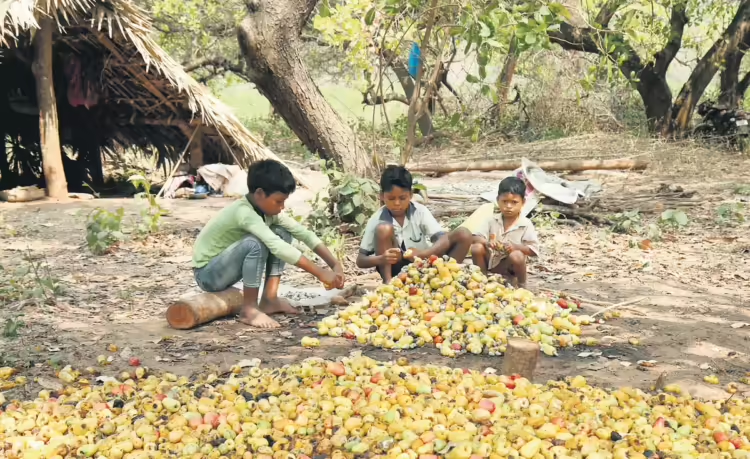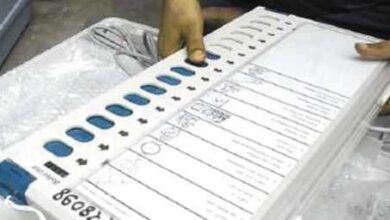Andhra Pradesh: Voter barriers annoy indigenous people
Tribal communities deal with the difficult job of traveling more than 10 kilometers to their voting places during elections, adding another obstacle to their ongoing fight for basic infrastructure.

These tribal tribesmen are discouraged by the administrators’ negligence and failure to choose appropriate voting places.
In order to avoid having to travel great distances to cast their ballots, 532 voters from 11 of the 15 villages in Cheemalapadu Panchayat have been pleading with the authorities to set up a polling place at MPPC School in Jogumpet.
Ajaypuram, Rayapadu, and Kadagedda are among the tribal communities in the Ravikamatham mandal of Anakapalle district’s Cheemalapadu panchayat that TNIE recently visited.
The ST Konda Dora tribes live in Ajaypuram, which has 25 households, around 200 inhabitants, and 60 eligible voters.
Still, locals had to travel 12 miles to the Cheemalapadu polling station in order to cast their votes, even though the MPPC primary school in Jogampeta is just 1 km from the hamlet. The school is an ideal voting place since it has all the necessary facilities.
When Pangi Vijay Kumar thought back on the difficulties his hamlet was facing, he regretted the inadequate road connection.
“Road connection is our biggest issue. Although there’s adequate communication up to Jogampeta school, our village’s walkway is yet developing. This makes it more difficult to acquire necessary services like ambulances,” he said.
Kumar spoke in favor of installing a voting station at Jogampeta School, highlighting the advantages for both his community and the other villages.
The locals are also upset since the promises made as part of the Jal Jeevan Mission have not yet come to pass. Progress has stopped despite early initiatives, such drilling a hole and building a water tank nine months ago.
This year’s reduced yields would only make matters worse for these Particularly Vulnerable Tribal Groups (PVTGs), who depend on cashew trees for their subsistence.
Similar to Ajaypuram, Rayapdu village has several difficulties, including inadequate roads, a lack of potable water, the refusal to provide Aadhaar cards to some residents, and excruciatingly long wait times for the delivery of basic government supplies.
One homeowner bemoaned, “Surveys have been conducted up to five times, and only two of the 15 houses have received D-form pattas to our lands.”
“The ration we get from the government is not supplied in a single go,” another villager said, emphasizing the hardship of the sporadic monthly grocery delivery. We have to carry our groceries in two or three batches and go many kilometers to get them.
The Rayapadu people will also need to travel 13 kilometers in order to get to the voting place. One villager said, “There aren’t any proper motorable roads in our village, so cars don’t service it.”
Villagers expressed their disappointment, highlighting what they saw as a lack of communication between elected officials and the people they serve. The imperative necessity for higher authorities to regularly monitor and evaluate the execution of approved projects in tribal regions was emphasized by tribal leader K Govind Rao.
Higher authorities need to provide frequent monitoring and surveys of approved projects in tribal communities top priority. Even when initiatives get higher-level approval, their execution often fails to live up to expectations. He believed that ensuring accountability and responsibility is essential to closing the gap between purpose and action.







